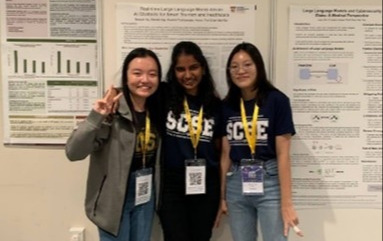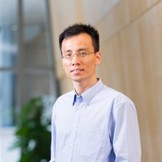NTU-Imperial Education Fund: Digital twins for blended learning with classroom flipping
Project Team
A/Prof Tan Chee Wei, School of Computer Science and Engineering, NTU
Prof Deniz Gunduz, Electrical and Electronic Engineering Department, Imperial
Project Summary
This project explores a technology-driven pedagogy that brings AI-infused education into the classroom through a digital student peer powered by a Generative AI (Gen-AI) chatbot interface. By leveraging collaborative learning and large language models (LLMs), the initiative encourages interactive virtual learning that simulates peer-to-peer engagement.
What We Set Out to Do
Key objectives include:
- Developing a Gen-AI student peer to enhance collegial interaction among students
- Adapting blended and flipped classroom models for hybrid teaching environments
- Promoting self-directed learning through AI-facilitated discussions and evidence-based, interactive teaching methods
The project ultimately aims to establish a new Gen-AI pedagogical paradigm—one that supports student autonomy, deepens engagement, and redefines the learning experience in higher education.
How It All Came Together
We hosted a Gen-AI Hackathon for students — a showcase of creativity and innovation in AI-powered education. Using the Nemobot platform, students developed chatbots that addressed real-world challenges in areas such as smart tourism and healthcare, incorporating real-time API integration and conversational intelligence through large language models (LLMs).
As part of the project, students also participated in a Gen-AI hackathon where they developed practical chatbots for smart tourism and healthcare. Using the Nemobot platform, these chatbots explored real-time API integration and the capabilities of large language models (LLMs) in solving real-world challenges.

One of the student teams — Boxuan Yu, Glenda Yap, and Roshini Pushparajan — went on to present their work at two NTU conferences, contributing to broader conversations around the role of AI in learning and teaching.
👉Download the student poster here (PDF)
Why This Matters
This initiative is more than just a chatbot experiment — it’s a step toward reimagining how we teach and learn in the age of AI. By blending human-centred pedagogy with Gen-AI tools, we’re exploring new ways to make learning more responsive, inclusive, and engaging.
Sharing Ideas, Sparking Conversations
The Gen-AI Peer Learning project didn’t stay confined to the classroom — it travelled.
Our students presented their work at two major conferences in 2023:
- The International Conference on AI in Medicine at NTU’s Lee Kong Chian School of Medicine
- NTU’s From Good to Great (fG2G) Annual Learning and Teaching Conference
These events gave students the opportunity to share their AI-driven innovations with both academic and public audiences.
The project also found its way into the curriculum. Joint teaching activities and new learning materials were incorporated into the Cloud Computing modules (SC4052/CE4052/CZ4052), creating richer, AI-integrated classroom experiences.
An academic paper—"Large Language Model-Driven Classroom Flipping: Empowering Student-Centric Peer Questioning with Flipped Interaction"—was published on arXiv, marking a significant scholarly contribution from the team.
The momentum didn’t stop there. The work has gained attention beyond academic circles, with early citations and mentions in broader discussions on AI in education. Workshops and campus events further extended the reach of the project, helping to inspire conversations on what the future of learning might look like.
This blog post was developed by the CTLP EduGrant team based on the project’s submitted summary report. Text was partially shaped with support from ChatGPT-4 to enhance communication and outreach.

College of Computing & Data Science, Nanyang Technological University

Prof Deniz Gunduz
Department of Electrical and Electronic Engineering - Faculty of Engineering
